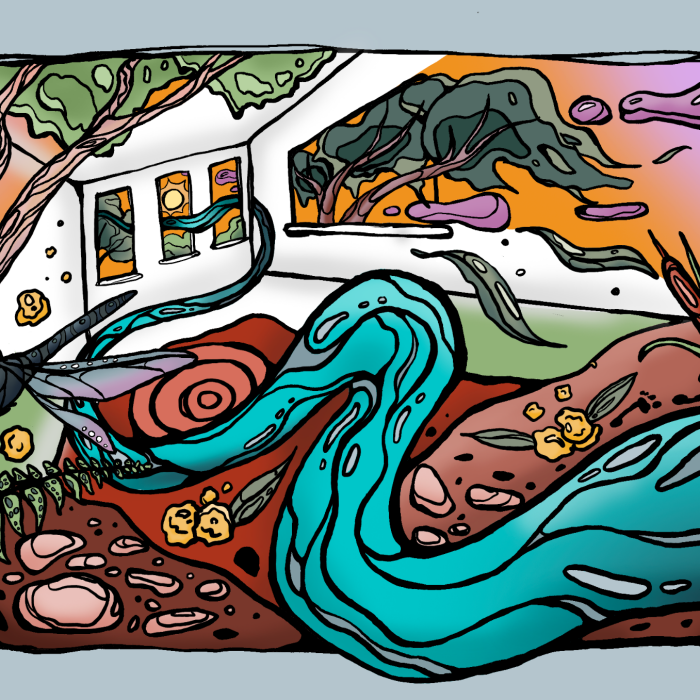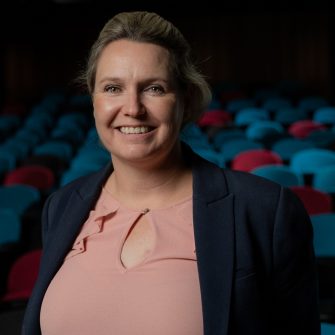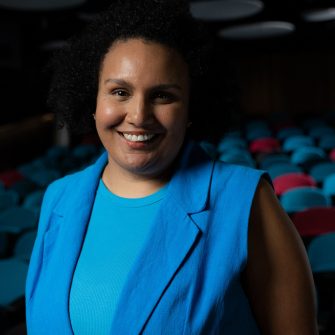Caring for Country Leave
Driving climate action through reciprocity

The problem
We consistently hear that the increasing challenges of human-induced climate change require grassroot, place-based actions to repair the ecological and socioecological networks of our local communities. Whilst 79% of Australians believe that climate change solutions can be found through collective community action, we know there is a volunteer shortage to undertake grassroots activities that move us towards climate action.
First Nations knowledge systems recognise all things are of and from the land. Country includes both living and non-living elements. We exist in a reciprocal relationship with Country, and we have a responsibility to give back to it.
“We are all responsible for caring for Country. Country holds everything within the landscape… Earth, Water and Sky Country as well as people, animals, plants and the stories that connect them.” - Tessa Carnegie, Project Co-lead.
Our strategy
Caring for Country Leave is proactive and preventative climate action. It provides UNSW Arts, Design & Architecture (ADA) staff with up to four days of additional leave to give back to Country through culturally and environmentally appropriate activities across Australia.
By engaging in and reflecting on reciprocity, we can become a part of a collaborative responsibility to care for and honour the land and the community of all beings that support it. Connecting with and giving back to Country allows us to demonstrate real action towards climate change together with First Nations communities and all life within and across stolen and unceded land in Australia.
“Can you imagine the power of volunteering to deliver on climate change solutions and at the same time caring for Country?” - Dr Sara Padgett Kjaersgaard, Project Co-lead.
Our partners
The team has secured partnerships with several organisations including Randwick City Council, Greater Sydney Parklands, Greening Australia and Habitat for Humanity Australia. Many of these connections were fostered through the UNSW ADA Unconvention in March 2024 where projects pitched to government, industry and community visionaries.
Dr Padgett Kjaersgaard: “On any given day this might mean you’re undertaking bush regeneration which is the rehabilitation of bush from a weed or degraded area into a healthier community for native plants and animals, it could even include planting endemic species say on coastal sand dunes. Over time, we hope we can broaden our partnership base to include engagement with social enterprises for social impact. For example, food relief and provision for homeless or even repairing and maintaining homes for community and crisis housing.”
Our impact
The team have developed and soft-launched the Caring for Country Leave policy. From 2025, staff in UNSW ADA will be able to undertake volunteering activities with partner organisations to help care for Country.
The project has also gained significant visibility among UNSW stakeholders, generating interest from other faculties and from the Division of Societal Impact, Equity and Engagement.
“Consultancy is an important part of the process and the project will continue to provide spaces for diversity of thought and hearing opinions.” - Ms Carnegie.
“As a non-Indigenous Australian, this project is really important to me. I always have, and always will, champion allyship with First Nations Peoples. This project provides a foundation for the repair work that needs to be done, and an avenue for us to move forward together.” - Dr Padgett Kjaersgaard.
The Caring for Country Leave project is always on the lookout for new partners to grow our network of volunteer pathways. If you’re interested in partnering with us to provide opportunities for people to volunteer and give back to care for Country, please reach out.
Illustration by Merindah Funnell, 2024
Project team

Sara Padgett Kjaersgaard
Project Co-Lead
Sara Padgett Kjaersgaard is the Director of Landscape Architecture and Senior Lecturer in the School of Bult Environment. Sara is a non-Indigenous Australian with ancestral ties to Scotland and France, and Denmark through marriage. She was born in Naarm (Melbourne) and raised on Wurundjeri and Boonwurrung Country, however has spent most of her life growing up on Whadjuk Country (Perth), of the Noongar Nation. She now resides on Gadigal/Wangal Country in Sydney. Sara is a First Nation ally who is committed to real action when it comes to reconciliation. A central component of real action is allowing space for self-determination to flourish. In the context of the Caring for Country Leave project, Sara entrusts in the relational processes that are required to build the foundations and ongoing web of connections between human and more than human species.

Tessa Carnegie
Project Co-Lead
Tessa Carnegie is the Project Officer supporting the strategy and project management of the Arts, Design and Architecture Indigenous Portfolio. Tessa has had a varied and vibrant career journey working across different industries and roles and, in this experience, honing a multifaceted skillset.
Tessa is a proud Birri Gubba Juru and South Sea Islander individual who endeavours to champion the ideas, opportunities, and pathways for Aboriginal and Torres Strait Islander people across the nation to build capability and confidence. This, in turn, goes hand in hand with the intention behind the Caring for Country Leave project; to effectively care for the country, it is vital we care honestly, with commitment, effective consultation, and deep understanding.
